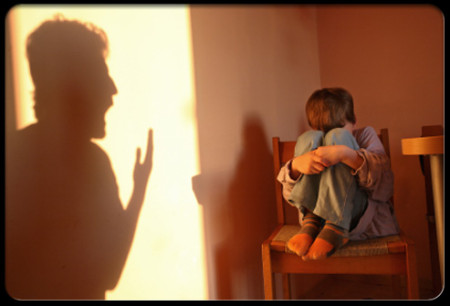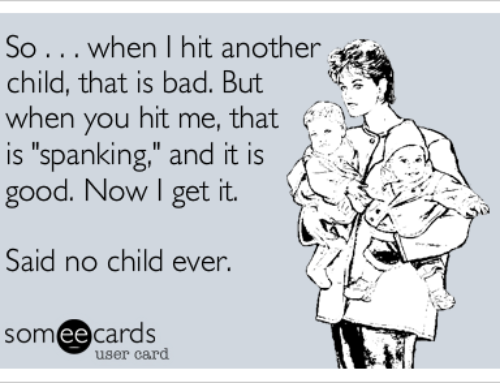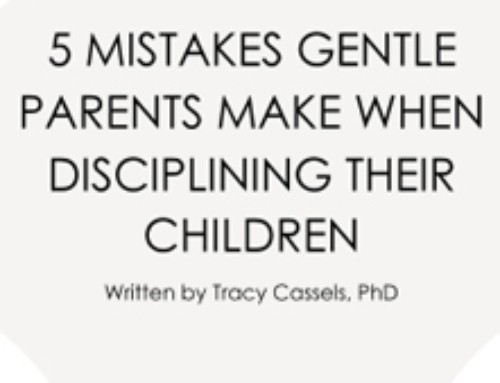
There is a push to see harsh discipline end in our Western culture. Articles and studies continue to find that this type of discipline is not only not helpful in the long-run in terms of socializing our children, but actually has some pretty clear negative effects too. However, many people continue to support these means and while some only try to use the “I turned out fine” argument, some rightfully point to research on certain subgroups that seem to find no lasting damage from these methods. In short, there seems to be a cultural element at play here that deserves some discussion. The research on this is growing and so this piece can only summarize some of what we know (because of what has been done), but I do think that what we have offers insight into some key points about how we discipline our children and what they take from it.
Is harsh discipline always bad?
From a research perspective, the short answer is “no, but” as there are many caveats that we have to look at to better understand this. Research has highlighted several groups for whom harsh discipline (specifically physical discipline) has not resulted in the same negative outcomes (specifically externalizing behaviours or overall adjustment) as has been found in other groups. One group is those with a Conservative Protestant background
In addition, research looking at outcomes based on country of origin also shows differential effects[3]. For example, children in Thailand had a huge effect of physical discipline with those who received high levels of use showing much higher levels of aggression than those who received low levels. However, on the other end of the spectrum, children from Kenya showed no difference on aggression levels by use of physical discipline – it seemed to have no effect on aggression at all. The other countries examined – China, Philippines, Italy, and India had effects that were in between the other two, but always a positive association between the use of physical discipline and child aggression.
More recent research[4] using a Jewish sample found that another variable seemed to come into play: child emotionality. That is, if a child is more intense or high-needs (which is what we would think of when researchers speak of emotionality), are they more susceptible to the effects? Well, it turns out it depends on their religious context (in this case, Judaism). Religious families were more likely than non-religious families to show no negative effects of psychological control or physical punishment, but the distinction between religious and non-religious families was stronger when children were of high emotionality. That is, high emotional kids from non-religious families showed lower levels of empathy and prosocial behaviour when mothers (but not fathers) used physical punishment, but the complete opposite was the case for high emotional children from religious families – they showed higher empathy and prosocial behaviours when mothers used physical punishment.
What moderates the effect between culture and outcomes to harsh discipline?
The question now is why only some groups show this moderating effect. The following are some of the ideas and what we know about them:
- Child interpretation. Some have suggested that child interpretation of the events or the fairness of it may influence the findings; however, Davidov and Atzaba-Poria looked at that very factor and found it had no influence at all on the findings[4]. It doesn’t meant it won’t matter in other subgroups, but it didn’t here. However, in a review of research on discipline more generally (not just harsh), child interpretation does seem to matter so this is something to still look into[5].
- Father versus mother. Which parent engages does seem to have an effect in [4], with no relationship to outcomes at all when fathers engaged in psychological control or physical punishment, but the stated effects above when it was mothers. In [1], the effect was with fathers and not mothers. Thus, it is difficult to know if there is or isn’t a sex of parent effect or if it has to do with cultural norms as to who takes on the primary role of discipline.
- Situational context. If harsh discipline is used only in very specific situations versus as a general discipline strategy. In one study examining the use of psychological control and physical punishment either in response to an academic misdeed or as a general discipline method, the researchers found that when these methods were used for an academic transgression with Israeli children, it was associated with increases in externalizing behaviours that were not evidence when they were used more generally in the same group[4]. In the same study, former Soviet Union families actually showed a more positive response to these methods when in an academic versus generalized context. More research on what situational contexts mitigate or amplify the effects is needed.
- Child temperament. As mentioned above, the effects vary for children with high or low emotionality. Other temperamental states need to be examined as well.
- Not all religiosity is associated with moderating effects, as found in [1] and [2], but there does seem to be some support that conservative religiosity has moderating effects. This explains the moderating effects of conservative Protestant backgrounds as well as religious Judaism (which is also considered conservative).
- Yes, there are even differences amongst cultures that we haven’t identified. It’s not just one aspect that seems to predict it, but various elements for different cultures. In [4], there was a distinction between the outcomes for Israeli and former Soviet Union families suggesting that there was some divide in these cultures that impacts outcomes. Similarly, in the research on different countries[3], there were differences between countries that may not be explained by shared traits.
- Conservative religiosity is linked to collectivism and thus this has been hypothesized as a potential mediator; however, in a direct test of this, Davidov and Atzaba-Poria[4] included a group of Kibbutz families which is highly collectivist and they showed the same pattern as non-religious, non-Kibbutz families, suggesting that collectivism is not the issue.
- Child sex. In other areas of parenting, child sex actually interacts with parenting to predict various outcomes, so should we expect it to be different here? Probably not, but we don’t have research on this to determine if that’s the case.
Is it ever good?
This should be the real question. Although we can say the negative effects may be mitigated, is there a rationale for engaging in harsh discipline? Is it ever positive? It seems it may have a potential positive effect within some of these cultures (as much as I personally hate to write this). If we look at the data on prosocial behaviour and empathy from Davidov and Atzaba-Poria, we see that lower levels of psychological control and physical discipline were associated with lower levels of prosocial behaviour and empathy than higher levels of these behaviours. In the other cross-cultural research ([1][2][3]) we do not see such support for these methods though – that is, low levels of physical discipline were not associated with any worse outcomes than the high levels of physical discipline, there was simply no effect (kids turned out the same on these specific outcomes if it happened or not).
I also want to point out that we only have a limited number of outcomes that have been examined and thus whether or not there are more harms or benefits is still up in the air. Most research looks at externalizing or internalizing behaviours, but even the newer inclusion of empathy and prosocial behaviours in [4] raised interesting questions here. Thus we have to be clear that what we know is only in reference to specific outcomes, not in general. We also are lacking long-term follow-ups with adults who may be more open about their own experiences and whether or not they found this type of parenting beneficial or harmful to their overall well-being.
What do we take of this? Well, first, I think it highlights how multifactorial parenting is. We are not the product of one decision, but the interactions of many. This is important to understand for those of us (myself included) who would like to see an end to harsh discipline; we have to look at the whole and understand why some children do better with it so that the focus can be on changing the mindset and culture that surrounds this type of disicpline.
I personally believe the child’s inherent right to bodily integrity is of the utmost importance and this often results in people saying, “who cares?” when it comes to this type of research. However, I am a firm believer in facing the facts so that we know how to address them. Getting people to change their ways isn’t done entire through legislation (though it’s certainly a start), but we have to understand the motivations behind them so we can provide alternatives that work for families given their cultural beliefs while respecting the child. Changing mindsets is something that is difficult at the best of times so the more we learn about others’ mindsets, the better off we are at producing change when it’s something as important as a child’s right. Or at least, that’s my two cents.
_____________________
[1] Gunnoe ML, Heatherington EM, Reiss D. Differential impact of fathers’ authoritarian parenting on early adolescent adjustment in conservative protestant versus other families. Journal of Family Psychology 2006; 20: 589. [2] Ellison CG, Musick MA, Holden GW. Does conservative Protestantism moderate the association between corporal punishment and child outcomes? Journal of Marriage and Family 2011; 73: 946-961. [3] Lansford JE, Chang L, Dodge KA, Malone PS, Oburu P, Palmerus K, …, Tapanya S. Physical discipline and children’s adjustment: cultural normativeness as a moderator. Child Development 2005; 76: 1234-1246. [4] Davidov M, Atzaba-Poria N. Maternal discipline and children’s adjustment: the role of cultural and situational context. Social Development 2016; 25: 99-119. [5] Grusec JE, Danyliuk T, Kil H, O’Neill D. Perspectives on parent discipline and child outcomes. International Journal of Behavioral Development





I smiled grimly to myself when discipline in the conservative Protestant group was mentioned. I grew up in such a fundmentalist movement, and my friends did too. Physical discipline did, on the surface, produce more empathetic kids. But please, please, take it from someone who knows this culture inside and out: in order for someone to be happy and fulfilled growing up in that manner,you have to focus on obedience and”breaking of the will.” You have to be disciplined to fear and believe. Kids not physically punished tend to be less fearful, so they push back, get angry at the dysfunction in this culture and tend to be cynical, less empathetic. It turns into a vicious cycle.
I know, and am one of the empathetic, prosocial kids. We all grew up into lovely people, who have a lot of hidden emotional problems, and struggle to maintain relationships (especially romantic) and have self-esteem issues. But it’s hidden so well it’s not seen on the surface.I’m disheartened that the researchers have not dug deeper into this issue.
I wholly agree with you and I think that interviewing older people about their experiences is essential. I’m so sorry for your take and really do hope we can get beyond this type of punishment. A child’s right to bodily and mental integrity cannot be understated.
I wonder whether it matters if people are viewed as fundamentally good or fundamentally bad in the culture. If children are raised to believe they are flawed and originally bad, harsh punishment could be seen as driving out their unworthyness and making them redeemable. I also wonder about the relationship between punishment and social inclusion. Does harsh punishment go along with social exclusion (psychologically threatening) or is harsh punishment part of social inclusion (you are considered more socially acceptable after you have been punished and you share a bond of common experience with others in your community)?